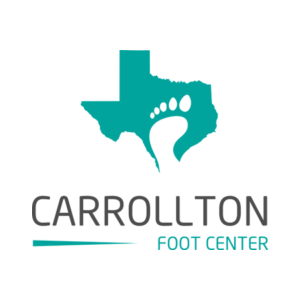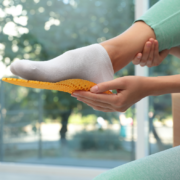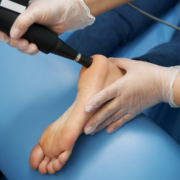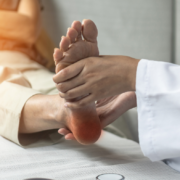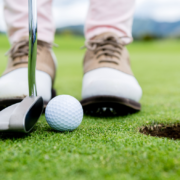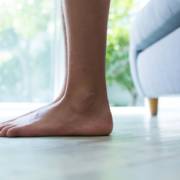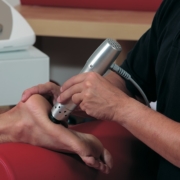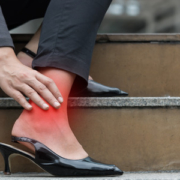Hitting the Pavement Without the Pain: How Runners Can Conquer Heel Pain
Carrolton Foot Center is all in favor of regular running! It’s an incredibly beneficial form of exercise that delivers consistent benefits, boosting both physical and mental well-being. However, there’s no such thing as a free lunch, and running is no exception.
Heel pain and Achilles tendonitis are among the common costs runners must confront, and like any podiatric problem, they create serious stumbling blocks when left untreated. The blog below should help you stay fit, flexible, and focused on your goals.
Preventing Heel Pain with a Strong Foundation
You can keep heel pain from starting with some of these preventative measures.
- Supportive Shoes: Invest in well-fitting running shoes with proper arch support and cushioning specifically designed for your running style. Replace them every 300-500 miles to maintain optimal shock absorption.
- Stretch It Out: Regularly performing calf stretches and foot mobilizations helps maintain flexibility and range of motion, reducing stress on the heel.
- Gradual Progression: Don’t jump into high mileage or intense training too quickly. Gradually increase distance and intensity to allow your body to adapt and strengthen.
- Cross-Training: Mix up your routine with low-impact activities like swimming or cycling to provide recovery periods for your heels.
Managing Heel Pain: When Prevention Isn’t Enough
Sometimes, you’ll need to handle pain that’s already present, and RICE (Rest, Ice, Compression, and Elevation) isn’t always enough.
- Custom Orthotics: Podiatrists can create custom orthotic inserts that address your specific biomechanical imbalances, providing targeted support and pressure relief to prevent conditions like plantar fasciitis and overpronation.
- Pain Relief Options: Over-the-counter pain relievers can help manage discomfort.
Treating Persistent Heel Pain: Advanced Strategies
If pain persists despite conservative measures, your podiatrist may recommend:
- Leneva® Fat Pad Injections: These injections replenish lost cushioning in the heel pad, promoting pain relief and tissue healing, which is particularly helpful for plantar fasciitis.
- Radial Pulse Shockwave Therapy (RPSWT): This non-invasive treatment utilizes sound waves to stimulate tissue repair and regeneration, promoting healing in conditions like Achilles tendonitis and plantar fasciitis.
Board-certified podiatrist Dr. Naghmeh Lilly Khavari is committed to helping patients in Carrollton, TX. With advanced treatment methods, she offers assistance with everything from ingrown toenails to sophisticated surgical solutions. Contact Carrollton Foot Center’s office at 469-998-3668 to schedule an appointment today!
